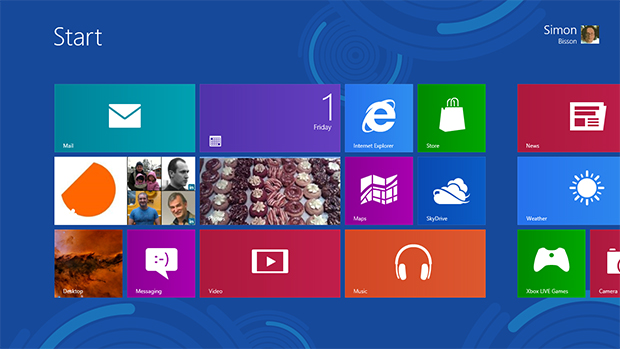Gartner: Windows 8 for desktop users is, in a word, "bad"

Gartner has two things to say about Microsoft's upcoming operating system. Windows 8 on tablets: "I like this thing." Windows 8 on desktops: "In a word: Bad."
Ouch.

In a five-part review, Gartner's research director veteran Gunnar Berger runs through the latest offering from Microsoft and meticulously details his experiences.
Given the fact that Windows 8 will be available in both desktop and tablet versions -- the latter dubbed Windows 8 on ARM, or officially Windows RT -- he runs through in great detail what the consumer and enterprise user should expect in a break away from previous visual stylings of Windows.
There's no doubt Microsoft has invested a great deal in setting Windows up for the tablet environment -- albeit somewhat late to the party following both Apple and Google's long-standing position in market share rankings -- and it's paid off in terms of Gartner's view.
"I see Windows 8 as a great compromise with the end-user consumer," Berger said in part two. He noted in a previous piece that Windows 8 isn't a strict move to "enable the enterprise," but "a move to support the trend towards consumerization within the enterprise." In other words: Windows 8 is "aimed at end-user consumers, not IT departments, but this may not be a bad thing for Microsoft."
But the punch to Microsoft's kidneys comes later when Berger takes to the desktop.
It's all the things you've heard before: the menus are difficult to access with a mouse and keyboard and are hidden behind the invisible walls of screen edges -- and remote computing is a pain in the posterior, which in an enterprise setting is crucial for PC management and IT support.
"The decision to move to Windows 8 was a solid business decision to get into the tablet market," he says, but noting his expertise in enterprise desktops, he warns that, "Microsoft forgot about [keyboards and mice] when they designed Windows 8."
Breaking down the numbers, which is more important: Windows 8 satisfaction on tablets, or desktops?
IDC said the worldwide tablet market will rise by near 70 percent to 107.4 million in 2012, IDC says. It's worth noting the vast majority of these figures come from iPads and Android-powered tablets. Windows 8, despite having no current market share in the tablet, isn't expected to leave much of a mark. However, PC sales are expected to remain flat at around 87 million shipments in the third-quarter, says Gartner.
"We don't expect Windows-based tablets to necessarily take share from Apple and Android, but will grow the overall tablet market," said IDC research director Tom Mainelli last month.
It's fair to say that come the New Year, there will be a higher proportion of PCs that all but entirely run Windows than tablets running the upcoming operating system, thanks to the consumer boom around the holiday season. Therefore, there will be more desktop users of Windows 8 than tablet users, leaving a majority scratching their heads and confused as to why Microsoft would make such a desperate move to dump the desktop in favour of a tablet market share grab.
At least on the bright side, Microsoft will support Windows 7 until 2020. Thank your lucky stars for that.
Update on 24 July at 1:00 p.m. BST: The "bad" claims were retracted by Berger, and explained that the words were "taken out of context." You can read the PC Pro interview here, and ZDNet Ed Bott's comments on why Gartner should be taken with a pinch of salt.
Image credit: Simon Bisson/ZDNet.